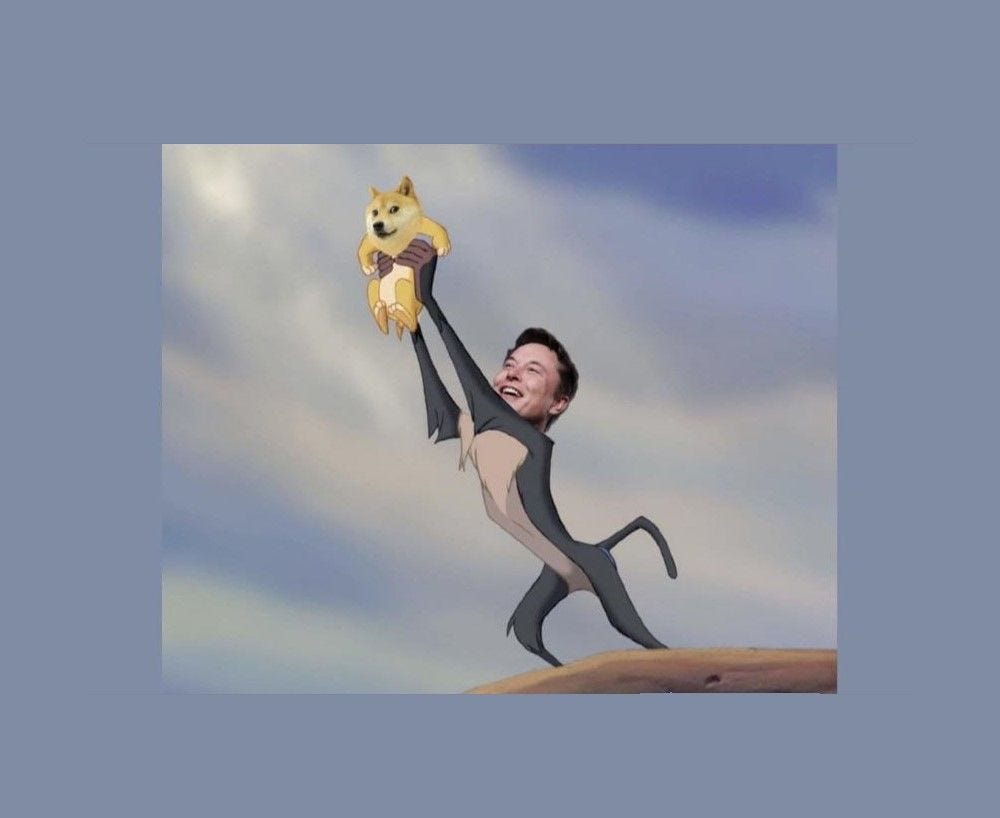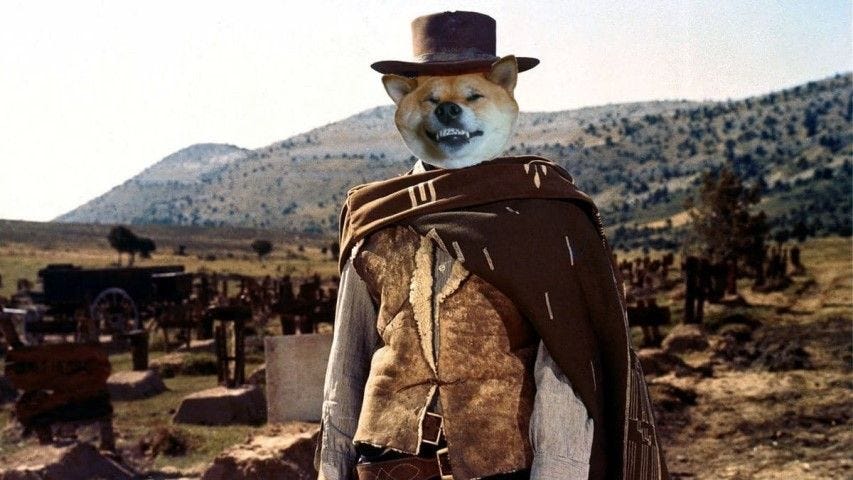The rise of dogecoin and celebrity influence

Dogecoin -"dough-jeh" - seemingly came out of nowhere with it's recent increase in price and popularity. How did this happen? More importantly. Why did this happen? We'll discuss the good, the bad, and the ugly of meme coins.
Meme (mēm) coin - an amusing or interesting item (such as a captioned picture or video) that is spread widely online especially through social media. Meme coins are cryptocurrencies that use memes to raise awareness through humor.
Where did Dogecoin come from? (The good doge)
Jackson Palmer and Billy Markushad a mission of poking fun at cryptocurrencies. So they set out to create a coin that would be abundant and cheap for everyone to use. They came out with Dogecoin on December 6, 2013 by using Litecoin’s code, which is a derivative of Bitcoin. The difference is that 10,000 new dogecoin are introduced into circulation through block rewards every minute. That's 14.4 million per day. Forever. Dogecoin has an infinite supply cap. To put that into comparison, only 6.25 bitcoin are introduced every 10 minutes. That number will halve to 3.125 in 2024. If you're not familiar with how block rewards and mining works, check out the bitcoin whitepaper. Bitcoin is scarce; it has a 21 million supply cap and currently 18.7 million are circulating. Dogecoins current supply is almost 130 billion. You can immediately notice there is more supply than demand for dogecoin and there always will be, that's the point. We'll go over later on how much demand is needed for dogecoin to hit $10.
Infinite supply caps are not inherently bad. Ethereum, a well-respected currency amongst experts, also has an infinite supply cap. In contrast to dogecoin however, Ethereum limits coin-release to 18 million per year, and that is only to make up for lost or misused coins. The creation of new coins keeps the ethereum circulating supply in equilibrium.
Along with the ease of use and infinite supply, another reason Dogecoin quickly became popular is because the iconic doge meme was used as a mascot. No doubt that suspicious looking Shiba Inu is cute. Who wouldn't want to own one of those coins?
Right from the start, doge were being handed out by the thousands. They were essentially worthless and a well-known joke amongst crypto fanatics; they were made for the internet to enjoy and by no means taken seriously for financial use.
Now, it seems that people forgot the joke….
In a 2018 interview, Palmer, who had left the dogecoin development team, expressed that he's horrified by it's success. He noted that there’s a “toxic community” that had encircled it, and a stream of money had seduced developers and speculators into thinking they'd reinvented the wheel.
Jokes can be good. There has been philanthropy from early adopters who used their large dogecoin holdings to donate to charities, animal shelters and even sponsored a NASCAR driver.
With great power, comes with great responsibility. (The bad doge)
What's interesting is that everyone knows it's a joke...hopefully everyone. Yet, people are buying and hodling because celebrities are entertaining the idea of dogecoin being the next big thing.
People are waiting for Elon Musk - the self proclaimed "dogefather" - to take doge to the moon. He knows dogecoin is a joke. He's having fun with his fans and playing into the irony of how a joke crypto can take over financial institutions. What's bad is that people are taking his humor as serious financial advice. People believe he's the reason dogecoin will reach above $10.
Elon isn't the only celebrity feeding the frenzy. Guy Fieri and Mark Cuban are also jumping on the doge meme coin game. There's nothing wrong with having fun with memes. They are comical. What's bad is when people can't tell the difference between reality and a joke. It's not an influencer’s job to protect their followers. It's your job, and only your job, to research your investment decisions.
Rollin’ out to the MOON 🚀 #Dogecoin pic.twitter.com/OHwuihdlUD
— Guy Fieri (@GuyFieri) April 13, 2021
Well what if dogecoin hits $1? Or $10? (The ugly doge)
This is where we have some fun by doing our due diligence. Price is ultimately determined by what people are willing to pay per coin. We can review the market cap equation and see how much money needs to go into dogecoin to be valued at $1 and $10.
Market price= Market Cap / Circulating supply
From the equation, we can tell that an increase in circulating supply will decrease the market price. For example, within 24 hours, 14.4 million new dogecoin are introduced into the network. The circulating supply will increase, meaning all 14.4 million doge will have to be purchased for at least $1 in order for the price to stay at $1. Therefore $14.4 million dollars worth of doge needs to be purchased everyday. Which is possible, if nobody sells it for under $1 to collect their profit, which is unlikely. In order for people to buy, there needs to be people selling.
Let's use that same equation to see what the market cap would be if dogecoin were to hit $10.
Market Cap = Market price * Circulating supply
Currently there's about 130 billion dogecoin in circulation. Multiply that by the theoretical price of $10, and we'll get a $1.3 trillion market cap. That makes dogecoin the 8th largest asset in the world. At $10 people would need to invest $144 million per day - that's over twice the daily volume of bitcoin. Dogecoin reaching $10 is simply an unrealistic expectation.
Dogecoin is a joke that's gone too far. Be reasonable, have fun, and invest wisely.




